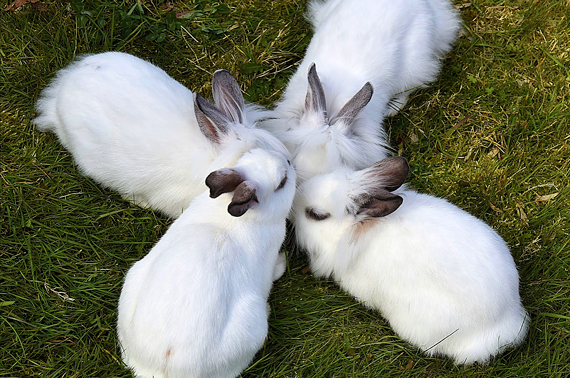
The RSPCA is shining a light on the plight of the Easter bunny as the charity received more than 5,000 welfare reports about rabbits last year.
The typical image of the Easter bunny means that rabbits are more popular at this time of year and parents have found themselves buying a rabbit on impulse due to the pester power of their children.
Many pet shops refuse to sell rabbits around Easter, however, to avoid this.
Rabbits are often perceived as an ideal ‘starter pet’ for young children, but they actually have complex needs and, according to the RSPCA, are one of the most neglected pets in Britain.
Every spring the charity sees a spike in rabbit rehoming with the most rabbits being rehomed in May (238 in 2019).
In 2019, there were 5,482 incidents reported to the RSPCA about rabbits and the animal welfare charity received more than 900 neglect complaints. There were also more than 300 abandonment complaints and 164 contacts from owners wishing to give up their rabbits.
COMPLEX
Dr Jane Tyson, RSPCA rabbit welfare expert, said: “Sadly, when rabbits are bought on impulse, an owner may not realise how complex they are to care for and what a commitment caring for rabbits can be.
“Rabbits are arguably one of the most neglected pets in Britain despite being much-loved by many. Loving pet owners will understand their complex needs but unfortunately some of the common misconceptions about housing and diet are still prevalent today.
“We would like to see an end to rabbits being kept alone in a small hutch at the bottom of the garden. As sociable and energetic creatures, this restricts their natural behaviours and has a negative impact on their welfare.”
Welfare points include:
> Rabbits need a hutch or shelter large enough for them to stand up and stretch out fully, with an attached run for access to an exercise area
> Rabbits need to eat a bundle of hay as big as they are every day.
> They are sociable animals who need to be kept in pairs.
The charity has currently paused its rehoming due to the coronavirus outbreak but there are still lots of rabbits in RSPCA care.


